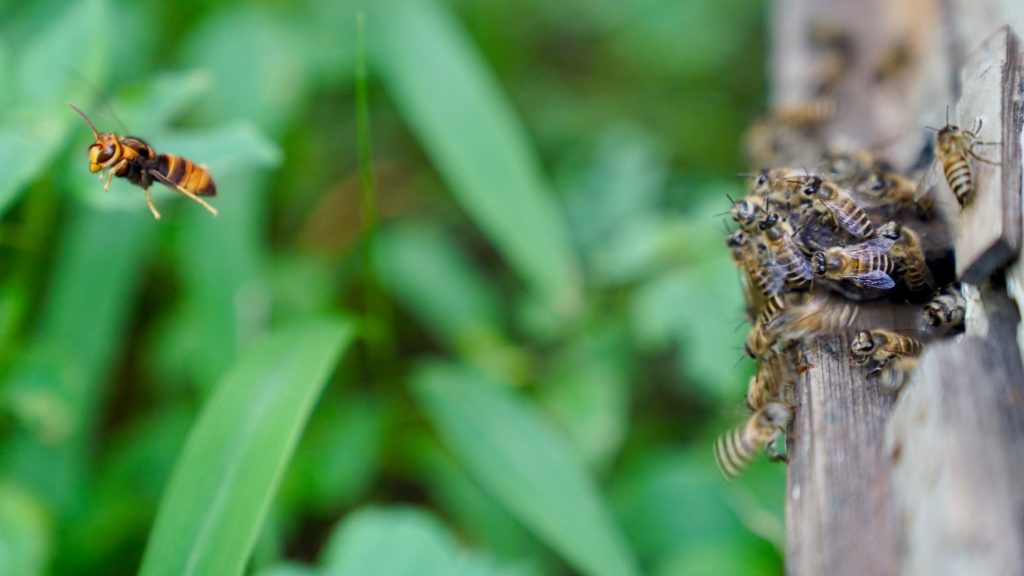Daily Business Report-Dec. 9, 2020
A Skyborg conceptual design for a low cost Unmanned Combat Aerial Vehicle. (Artwork courtesy of Air Force Research Laboratory)
Air Force taps General Atomics, Kratos
and Boeing to build UAV
prototypes for manned-unmanned teaming
GOVCOM Wire
Boeing, General Atomics’ aeronautical systems business and Kratos Defense & Security Solutions have received separate two-year contracts worth $77.8 million combined to develop prototype unmanned air vehicles for the U.S. Air Force’s manned-unmanned teaming experimentation initiative.
All three companies will aim to build UAV technology to serve as testbeds for an autonomous core system concept under the military service’s Skyborg Vanguard program, the AF Life Cycle Management Center said.
Skyborg is an autonomy-focused capability that will enable the Air Force to operate and sustain low-cost, teamed aircraft that can thwart adversaries with quick, decisive actions in contested environments.
The contracts of Boeing, General Atomics Aeronautical Systems Inc. and Kratos are valued at $25.7 million, $14.3 million and $37.8 million, respectively. General Atomics and Kratos are based in San Diego.
USAF plans to assess the performance of each contractor across multiple phases over a 24-month period and expects to receive the prototypes by May 2021 for an initial flight test before the service branch commences formal experiments in July of the same year.
The branch designated Skyborg as one of its three Vanguard programs last year under a science and technology strategy designed to accelerate the development and deployment of warfighter systems over the next decade.
____________________________________________________
Sundt Construction launches Sundt Renewables
Renewable energy contractor is led by a trio of solar industry experts

Sundt Construction Inc., one of the country’s largest general contractors, has expanded its presence in the renewable energy construction market with the launch of Sundt RenewablesLLC. Prior to forming the new subsidiary, Sundt acquired select assets and key personnel from i1 Energy, a well-known leader in the renewable power market.
Sundt Renewables will focus on utility-scale solar and energy storage projects across the United States with a heavy emphasis on the Southwest and Texas.
Sundt Renewables is led by a trio of solar industry veterans and successful entrepreneurs who founded and grew i1 Energy into a well-respected market presence.
Tom Dodson leads the group as its managing director. As co-founder of i1 Energy, he led the company’s operations and oversaw the construction of its projects.
Topher Wood brings $2.5 billion in solar project experience to his role of vice president, business development manager. Before joining Sundt Renewables, he cofounded i1 Energy and led another solar industry contractor’s strategy and development
Bobby Batista, i1 Energy’s third co-founder, along with Dodson and Wood, brings over 10 years of solar project experience to his new role of vice president, engineering director.
____________________________________________________

Governor announces statewide
smartphone-based COVID-exposure tracking
City News Service
Gov. Gavin Newsom announced a statewide smartphone-based system designed to notify residents when they’ve been exposed to COVID-19.
The CA Notify system was originally developed at UC San Diego and UC San Francisco, and it has been deployed on a trial basis on seven UC campuses, with an estimated 250,000 people opting in to participate, Newsom said.
The system relies on Bluetooth technology that detects when a person is in close proximity to others, thanks to anonymous signals transmitted among cell phones. When a person who has opted into the program tests positive for COVID-19, the person can then consent to have all of their recent close contacts notified by cell phone.
Those contacts then receive a notification on their phone, alerting them that they have recently been exposed to someone who has tested positive for the coronavirus. The idea is to more rapidly reach people who may have unknowingly contracted the virus and could be passing it along to others, giving them a chance to get tested and go into quarantine.
____________________________________________________
How California renters are
bracing for an eviction tsunami
By Nigel Duara | CalMatters
Two million Californians could be forced from their rental homes early next year, and the bad omens are happening now, all around them. They’re in the credit card bills they stack in a corner, the personal relationships they test by borrowing money, the hours waiting on the phone hoping to get their unemployment claim approved — all of it adding up to debts on paper and holes in their lives.
These renters are on the edge of an eviction cliff. Once they fall, there’s no telling how long it will take them to climb back up, especially in a state like California, where nearly everything costs more.
Using a U.S. Census survey on how the coronavirus is affecting households across the country, Carolina Reid, associate professor of city and regional planning at the University of California, Berkeley, estimates there are approximately 2 million people, including children, at risk of eviction based on the 600,000 California households that fell behind on rent in August.
Since then, the number of renters at risk of eviction has fluctuated, but the number of California adults reporting that they’re behind on rent in November has topped 1 million.
“This really is a crisis that’s broad,” Reid said, “and income losses are hitting households across the spectrum.”
____________________________________________________

Honey bees use contagious and honest
visual signal to detect attacking hornets
By Mario Aguilera | UC San Diego
An Asian hornet sets its sights on a busy honey bee hive. If all goes according to plan, the hornet’s attack will result in a haul of bee larvae, precious nourishment to pilfer and feed to its own hornet young.
But over time, predator-prey evolution has equipped some honey bees with a potent defense mechanism against such an attack. A signal from colony guard bees lets hornets know that their attack plans have been exposed, and also sends an alarm across the bee colony communicating that urgent reinforcements are needed due to the impending danger. This “I see you” (ISY) visual signal involves guard bees shaking their abdomens laterally and increases as the threat intensifies.
Hornets are ferocious bee predators that have invaded multiple countries around the world. Yet even the giant “murder” hornets that have generated much concern of late have come to recognize the ISY signal as a warning to back off. They are well aware that ISY can lead to a counter attack in which a mass of bees surrounds the hornet, forming a “heat ball” with a deadly mix of heat, carbon dioxide and stinging for the hornet inside.
University of California San Diego biologists studying Asian honey bees (Apis cerana) and hornets (Vespa velutina) have produced new research that deconstructs this ISY signal and shows for the first time that it is visually driven and contagious across the bee colony. The findings are described Dec. 7, 2020 in the Journal of Animal Ecology. A key point of the new study is that the bees can only succeed if they have sufficient numbers to effectively execute a heat ball.
____________________________________________________
General Atomics completes full-scale testing
on MQ-9B SkyGuardian wing structure
General Atomics Aeronautical Systems Inc. (GA-ASI) recently completed full cale static testing on the MQ-9B Remotely Piloted Aircraft (RPA) wing after three months of extensive testing. MQ-9B includes SkyGuardian and SeaGuardian RPA produced by General Atomics.
The testing included multiple load cases to 150 percent of expected maximum flight loads. The wing was loaded using specially designed fixtures to apply a distributed load across the wingspan – simulating gust and maneuver flight conditions – with no failures.
“Successful completion of FSS testing on the MQ-9B wing was a critical step in proving that our design meets stringent certification standards for structural strength and integrity,” said Dee Wilson, a vice president. “The wing performed as expected, matching analytical predictions closely. Our engineering design, stress and test teams are commended for an exceptional effort in meeting this critical milestone.”
The wing test success establishes the baseline wing design for the entire MQ-9B product line, which is critical as the company starts deliveries to multiple customers pursuing the MQ-9B, including the United Kingdom,Belgium and Australia, according to a company statement.
____________________________________________________

Wilson Turner Kosmo law firm adds 5 associates
Wilson Turner Kosmo, the women‐owned law firm in San Diego, has added attorneys Elvira Cortez, Michaela P. Delacruz, Kristina A. Fretwell, Ashley E. Quinn and Jordan R. Turner to its Business Litigation, Employment, Product Liability and Warranty groups.
Elvira Cortez, a senior associate, brings extensive experience in civil litigation to the firm’s Business Litigation and Employment Law groups where she represents businesses across a wide range of industry sectors.
Michaela Delacruz, an associate in the firm’s Employment Law group, represents employers in a variety of employment disputes, including wrongful termination, among others.
Kristina Fretwell, joining the firm’s Product Liability group as an associate, has extensive experience representing regional, national and international insurance companies in coverage disputes and litigation.
Ashley Quinn, an associate, joins the firm’s Product Liability and Warranty groups through which she represents companies involved in product liability matters as well as manufacturers in warranty, fraud and unfair competition claims brought under both federal and state laws.
Jordan Turner, an associate in the firm’s Business Litigation and Employment Law groups, counsels and represents employers in a variety of employment disputes, including discrimination, harassment and retaliation as well as wage and hour litigation and against other employment-related claims.
____________________________________________________
Veritas Capital to acquire IT and mission
support services business of Northrop Grumman
An affiliate of Veritas Capital, Peraton, has signed a definitive agreement to acquire the federal IT and mission support services business of Northrop Grumman for $3.4 billion in cash. The business provides a wide range of advanced technology solutions including cybersecurity, data analytics, cloud, mission-critical application development and advanced engineering to defense, intelligence, space, civil and health customers. The business expects to generate $2.3 billion in revenue in 2020.
The transaction is expected to close in the first half of 2021.
____________________________________________________
Aztec Forensics boosts national ranking
Despite the COVID-19 pandemic, Aztec Forensics, San Diego State University’s competitive speech and debate team within the School of Communication, continues to stay active, hone their public speaking skills and attend virtual tournaments during the pandemic. The student organization is currently ranked No. 12 in the nation — up from No. 18 — by the National Parliamentary Tournament of Excellence after history junior Matthew Hitomi and marketing junior Kyle Pryor-Landman went undefeated at the Grossmont College Invitational, held virtually Nov. 13-15. Pryor-Landman placed third overall in speaker points for the competition.
Engagement remains high among the forensics team, which has moved in-person debate prep to Zoom meetings and Discord servers to communicate and talk about strategy.
Hitomi and Pryor-Landman credit the coaching staff — which includes seven people who all hold at least one national championship in their respective field — for their support and fostering a culture of improvement during the pandemic.
“We are very fortunate to have coaches who are former national champions,” Hitomi said. “Our coaches are really helpful and willing to help us grow in the direction that we want to.”
____________________________________________________
UC San Diego selected to lead
international HIV/AIDS clinical trials unit
University of California San Diego Collaborative Clinical Trials Unit (CTU) has been selected by the National Institutes of Health (NIH) to lead and administer an international seven-year, $28-million grant for science-driven clinical trials that deliver innovative, efficient results needed to turn the corner on the HIV/AIDS pandemic.
Every seven years, NIH competitively renews its funding of the HIV clinical trials networks operating in the United States and internationally.
During the current application process, UC San Diego AntiViral Research Center, University of Colorado Hospital, Houston AIDS Research Team and Durban International clinical research sites were chosen to work collaboratively on research priorities for the NIH/National Institute of Allergy and Infectious Diseases HIV/AIDS Adult Therapeutics Clinical Trials Network. Chennai Antiviral Research and Treatment center, University of Southern California and University of Miami clinical research sites were also chosen to join the CTU to serve as qualified reserve or protocol-specific sites as needed for future clinical trials.



